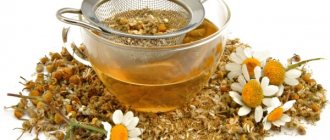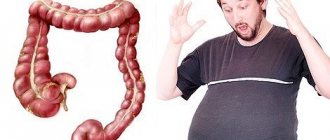Many of us have encountered problems such as nausea, chills, and general weakness.
Even a healthy person experiences one of these symptoms from time to time. But if they occur simultaneously, this often indicates serious malfunctions in the body and requires seeking medical help.
What it is
Chills are a condition in which a person feels shaking inside the body. He cannot warm up; even warm clothes, shoes, and hot tea do not help. Accompanied by chills, malaise, loss of strength. The person may feel very sleepy. He either falls asleep immediately or cannot fall asleep for a long time.
It is a mistake to think that chills are a sign only of colds. It also occurs in infectious diseases, hypothermia, disruption of the endocrine system, stress, VSD, pressure surges, and other conditions.
Nausea is discomfort in the epigastric region, which is accompanied by increased salivation and a state of lightheadedness. Often with this condition, the complexion changes, the person loses the ability to navigate well in space, and wants to sit down. Nausea is often accompanied by dizziness, a desire to vomit, and stomach pain.
In most cases, nausea is associated with diseases of the digestive system and bad eating habits. It can be one-time, for example, it occurs after overeating, alcohol abuse, or eating poor-quality food. Periodic and constant nausea are symptoms of serious health problems.
How to recognize poisoning?
There are different types of poisoning; it is mainly associated with the consumption of unedible food contaminated with harmful bacteria and chemicals.
Main signs indicating poisoning:
- A sharp, severe pain appears in the abdominal cavity;
- My head is spinning;
- Chills;
- Weakness;
- Nausea, repeated vomiting;
- Loose stools.
The main distinguishing features are the manifestation of symptoms after eating food, its intensity increases over time. If poisoning is caused by highly toxic substances, for example, botulinum toxin, disturbances in the functioning of the central nervous system may be detected - hallucinations, unclear coordination, blurred vision, double vision.
There are two types of intoxication:
- Bacterial nature. Most often it is food. It is not necessary that the source of the bacterium be food; sometimes it can be spread by a person in contact with it;
- Not bacterial in nature. Associated with the entry of chemical, toxic substances into the body through the respiratory system, skin, mucous membranes or orally. In addition to general symptoms, malfunctions of the liver (bitter taste in the mouth, yellowness of the skin), kidneys, and respiratory organs can be detected.
It is worth paying attention to what you ate before you felt worse, where you were, what you were doing - this will help identify the suspected source of poisoning.
Chills and nausea as signs of poisoning
Nausea, vomiting and chills are symptoms of food poisoning in more than half of the cases. After eating low-quality, spoiled food, it can take 2–6 hours. Sometimes the first symptoms of poisoning appear within a day.
The main ones, in addition to nausea and chills, are:
- diarrhea;
- abdominal pain;
- weakness, loss of strength;
- aversion to foods;
- dizziness.
Based on the symptoms, you can determine the type of poisoning; the table below shows the main ones:
| Bacterial | Nausea, diarrhea, vomiting within an hour after eating contaminated food |
| Viral | Same symptoms, only 12–48 hours after eating contaminated food |
| Chemical | Nausea, chills, vomiting, diarrhea, fever, sweating, pressure surges - symptoms appear within half an hour |
Do you still think that healing your stomach and intestines is difficult?
Judging by the fact that you are now reading these lines, victory in the fight against diseases of the gastrointestinal tract is not yet on your side...
Have you already thought about surgery? This is understandable, because the stomach is a very important organ, and its proper functioning is the key to health and well-being. Frequent abdominal pain, heartburn, bloating, belching, nausea, bowel dysfunction... All these symptoms are familiar to you firsthand.
But perhaps it would be more correct to treat not the effect, but the cause? Here is the story of Galina Savina, about how she got rid of all these unpleasant symptoms... Read the article >>>
If a person develops severe chills and the body breaks down, this means that a spasm occurs in the blood vessels and muscles of the skin.
The patient gradually develops the following symptoms:
weakness and trembling throughout the body; increased sweating at night; nausea and vomiting; headache.
Chills without fever in women and men are accompanied by problems with the masticatory muscles. Most often, the reason for this condition lies in hypothermia, since in such a situation the temperature drops sharply and the person begins to shiver. This is how a protective reaction to cold manifests itself.
Why then does the temperature rise? This factor is caused by muscle spasm, which leads to an increase in the amount of heat in the body. If a person warms up quickly, the chills disappear naturally.
Chills are usually accompanied by fever, headache, nausea and vomiting, and normal body temperature changes to high. Chills without signs of fever are most often a symptom of the following pathological conditions:
hormonal imbalances; poor blood circulation; various injuries; neuroses; fright
First aid
When poisoning is detected in the early stages, it is possible to quickly get rid of unpleasant symptoms. First of all, it is necessary to rinse the stomach; for this, use a solution of potassium permanganate. It is recommended for adults to dissolve several crystals in 0.5–1 liters of water, for children - 250 ml.
You need to rinse your stomach many times until only clean water comes out when you vomit. This simple method helps get rid of toxins that have entered the body with food, but have not yet had time to be absorbed into the blood and internal organs. After vomiting, the nausea usually goes away, but the chills remain. Therefore, it is better for the patient to lie down, preferably sleep, wrapped in a warm blanket.
In addition to gastric lavage, it is recommended to take enterosorbents at home. They will speed up the removal of toxins from the body. If, despite the measures taken, a person continues to shiver, feel nauseous, or the condition worsens, it is necessary to immediately go to the hospital with poisoning.
A popular enterosorbent is activated carbon; you can also use drugs such as Smecta, Polysorb, and their analogues.
Why do chills occur without fever?
It is important to know!
EVERYONE should know about this! UNBELIEVABLE BUT TRUE! Scientists have discovered a SCARY relationship. It turns out that the cause of 50% of all ARVI diseases, accompanied by elevated temperature, as well as symptoms of fever and chills, are BACTERIA and PARASITES, such as Giardia, Ascaris and Toxocara. How dangerous are these parasites? They can deprive health and EVEN LIFE, because they directly affect the immune system, causing irreparable harm. In 95% of cases, the immune system is powerless against bacteria, and diseases will not be long in coming.
To forget about parasites once and for all, while maintaining your health, experts and scientists advise taking.....
.. »
The cause of this pathological condition in women and men is a serious disruption in the functioning of any body system.
It is accompanied by weakness, general malaise, headache, nausea and even vomiting; the patient always wants to lie down to rest.
Chills without fever develop as a result of:
stressful situations; severe hypothermia; infectious disease; ARVI; pathologies of the endocrine system; sudden jumps in blood pressure.
If the cause of chills is hypothermia, at this moment the person experiences a sharp narrowing of the blood vessels. In this pathological situation, the patient’s condition is characterized by slow blood flow and the appearance of problems with metabolic processes.
The patient says that he feels cold, and the condition worsens at night, when the body sweats more. You can improve your well-being with the help of special warming procedures and drinking hot drinks.
Chills without fever during a cold, as mentioned above, are the body’s natural defense. What to do in this case? If a person is very cold, the following will help in this situation:
warm foot baths with the addition of medicinal herbs; hot milk with butter and natural honey; herbal infusions of strawberries, raspberries and currants.
After any treatment procedures, the patient should immediately go to bed and try to sleep. The body rests best during sleep.
When the cause of chills is some infectious pathogen, the patient’s body will most likely develop symptoms characteristic of general intoxication:
nausea; vomit; headache; general weakness.
This condition is due to the fact that pathogenic microorganisms, penetrating the human body, begin to actively produce various toxins and poisons, which are the result of the vital activity of these bacteria. What to do in such a situation? Treatment of infectious diseases can only be prescribed by a doctor, so the patient must immediately contact a medical facility.
The reasons for the condition when there are chills, but no temperature, often lie in the fact that a person is constantly experiencing stress and nervous tension. Most often it is observed in women, since they experience it more deeply than men. In such a situation, the patient needs:
try to calm down; take a decoction of sedative herbs; drink tea with lemon or sour berry decoction (blackcurrant, blackberry).
People with disorders of the vegetative-vascular system (dystonia) typically experience chills at night, less often during the daytime. Impaired blood circulation leads to the fact that these patients are cold all the time. This is why their extremities are constantly cold.
The condition when there is chills, but no temperature, is explained by a violation of the tone in the blood vessels. Taking a contrast shower, going to the sauna and other hardening activities will help make the circulatory system normal at least for a while. Hot procedures must be replaced by cold ones.
In order to remove toxins caused by stress from the body as quickly as possible, it is recommended for women and men to use a decoction of lingonberry leaves. However, in order to avoid such poisoning and its symptoms, which are headache, nausea and vomiting, you need to try to distance yourself from stressful situations and strive for a normal emotional environment. Nervous exhaustion poses a serious threat to the functioning of all internal organs.
Severe chills, in which there is no temperature, can occur in people susceptible to surges in blood pressure. During a hypertensive crisis, the state of the blood vessels changes, and this entails circulatory disorders.
When blood pressure returns to normal levels, the chills disappear completely.
Poisoning – when it is life-threatening
If gastric lavage and taking enterosorbents do not bring results, you should go to the hospital immediately. Such seemingly harmless signs as chills, nausea, and vomiting can develop into a threat to a person’s life. Sometimes the diseases that provoke these symptoms can be deadly, and dehydration itself, which is not combated, disrupts the water-salt balance.
You can suspect the presence of serious pathologies based on the following signs:
- stool more than 10 times a day;
- vomiting when trying to eat something or completely for no reason;
- blood impurities in vomit;
- blood clots in stool;
- intense pain of a girdle nature;
- a strong odor when vomiting, such as rotten eggs.
The appearance of one or more of these symptoms is a reason to urgently consult a doctor. Before his arrival, you must refuse food, lie warm, and, if possible, drink plenty of water.
Prevention of poisoning
By following preventive measures, you can avoid all the unpleasant symptoms of poisoning. They are applicable for children and adults. The main recommendations are:
Why does my stomach hurt and feel nauseous?
- do not eat undercooked meat;
- cook the eggs for at least 5–7 minutes;
- store meat, fish, eggs only in the refrigerator;
- wash your hands before eating or cooking;
- have separate boards and knives for each food group: meat, fish, vegetables;
- wash vegetables and fruits thoroughly, even from your own garden;
- do not consume expired products, even for a short period of time;
- buy them only in trusted places;
- do not eat mushrooms if you are not sure of their quality;
- wash your hands after touching pets.
Causes of nausea and chills in children
A child of preschool and school age complains of nausea and chills after hypothermia, acute respiratory diseases, or after a concussion. In infants, regurgitation is caused by stenosis of the esophagus, excessive consumption of artificial formula or breast milk.
Attention! If there is a suspicion that poisoning has developed in a newborn, inducing a gag reflex is contraindicated.
At an early age, nausea in children is caused by foreign objects entering the oral cavity and nasopharynx. In this case, you must immediately call an ambulance.
Nausea and chills are manifestations of a disorder present in the body. To identify the location of the health problem, the patient will have to undergo an examination. It includes laboratory, hardware and instrumental types of diagnostics. Before visiting a specialist, using a heating pad or taking medications, including antibiotics, is contraindicated. These measures can only aggravate the course of the pathology and negatively affect the patient’s well-being.
Other reasons
There are other causes of nausea and chills, besides poisoning, although they are less common, it is important to recognize them in time. Sometimes they indicate the presence of serious diseases. Doctors divide them into two main groups: with elevated body temperature and without fever.
With elevated temperature
If a temperature of 37 degrees or higher appears with nausea and chills, the possible causes may be the diseases listed in the table below.
| Disease | Additional symptoms |
| ARVI | Sore throat, runny nose, cough, lethargy |
| Stroke | Speech impairment, loss of coordination in space |
| Gastritis, ulcers, other stomach diseases | Diarrhea, abdominal pain, flatulence, loss of appetite |
| Acute appendicitis | Sharp pain in the lower right abdomen |
| Intestinal infection | Vomiting, abdominal pain, stool disorders |
If you suspect one of these diseases, you should immediately go to the hospital. The diseases listed in the table are only some of the most common, therefore, if a person observes any other symptoms that do not mean poisoning, a diagnosis in a clinic is required, tests to determine the disease.
What to do?
Elimination of the symptoms of nausea and chills is associated with the treatment of a specific condition or disease that causes them. For this purpose, medical and folk remedies are used, as well as a special diet and nutrition correction.
Medicines
Depending on the nature of nausea and chills, the doctor may prescribe the following medications to eliminate them:
Loperamide. Used to treat diarrhea of various nature, including emotional. Eliminates the root cause of nausea and chills in gastrointestinal disorders. Contraindicated in cases of hypersensitivity, dysentery, diverticulosis and conditions associated with intestinal obstruction and inhibition of peristalsis, under the age of 6 years. Price 11-55 rub. Regidron. A product for restoring water and electrolyte balance, correcting acidosis and energy balance during intense physical activity. Eliminates nausea and vomiting during intoxication. Contraindicated in cases of hypersensitivity, liver and kidney diseases, diabetes mellitus, intestinal obstruction, unconsciousness of the patient and hypotension. Price 390-410 rub. Diprazine. An antihistamine that calms the nervous system, enhances the effect of local painkillers, lowers body temperature and eliminates nausea. Contraindicated in drinking alcohol, impaired kidney and liver function, driving a car or operating complex mechanisms that require increased attention. Price 780-1450 rub. Paracetamol. Intended for use for pain of various origins, chills, fever, infectious and inflammatory diseases. Contraindicated in case of hypersensitivity, alcoholism, anemia, severe liver or kidney dysfunction, in the first trimester of pregnancy. Price 6-75 rub. Balm “Star”. Helps relax muscles and normalize blood flow, eliminates symptoms of infectious respiratory diseases and psycho-emotional disorders, relieves headaches and chills, and eliminates the feeling of nausea. Contraindicated in case of individual intolerance to the drug. It is recommended to conduct a susceptibility test before use. Price 60-220 rub.
Traditional treatment
The use of folk remedies can effectively relieve symptoms of chills and nausea. But before using them, be sure to consult with your doctor. For this purpose, the following traditional methods of treatment are used:
Warm the body with warm clothes and periodically drink hot tea containing raspberries and lemon, which reduces the feeling of nausea. If there is no fever, it is recommended to take a warm bath or steam your feet in a basin. In a stressful situation or mental imbalance, it is recommended to drink a glass of water, breathe deeply and take tea containing lemon balm, mint, sage and chamomile. For severe headaches and chills (migraines), use a piece of cloth soaked in vinegar and olive oil, which is applied to the frontal part of the head. After a few minutes, the symptoms will begin to subside. St. John's wort decoction. Helps eliminate intestinal disorders and relieve headaches. Prepared by brewing 1 tbsp. l. dry herbs in a glass of boiling water, followed by infusion for 6 hours. Take 200 g after meals. Eating grapefruit, lemon or orange lowers body temperature, eliminating chills, and reduces the feeling of nausea.
Nutrition correction and diet
Taking medications for nausea and chills will help to stop the manifestation of unpleasant symptoms once. But if the cause of problems in the body is associated with intoxication or disease of the gastrointestinal tract, the following recommendations should be followed:
If you feel nauseous, stop eating heavy food for 2-3 hours. Severe nausea and chills associated with fever can be relieved by fresh lemon. The best liquid to drink for nausea is still water or juice. Food should be consumed in small portions and chewed thoroughly. It is advisable to eat light meals (low-fat soup, broth). Include milk porridge in your diet. Drink freshly squeezed fruit juices.
If symptoms of nausea occur, limit the consumption of the following foods:
Fatty, smoked and fried foods. Carbonated drinks, coffee, alcohol and energy drinks. Spicy foods. Conservation. Sweets.
If nausea is present for 3-5 days, this is reported to a gastroenterologist or therapist for diagnosis, identification of the cause of the disorder and prevention of possible unwanted complications (gastritis, ulcers).
Psychogenic causes
Psychologically unstable conditions are found in an increasing number of young people. Panic attacks, stress, shock - all this affects not only the emotional state of a person, but also the physical one. Nausea and chills occur against the background of symptoms such as:
- increased heart rate;
- flushed face;
- feeling of heat;
- weakness;
- sweating;
- breathing problems, shortness of breath;
- lethargy, feeling of “woolly legs”.
Panic attacks usually appear at a young age. Many people simply do not attach importance to this condition, so they ignore the first symptoms. Over time, the frequency and duration of attacks increase. On average, a panic attack lasts 30–60 minutes.
Panic attacks are often accompanied by intense fear; some are frightened by the thought of sudden death; women are especially susceptible to this condition.
Sometimes panic attacks first occur in older people. Many people are frightened by the new condition, confusing it with a heart attack, so they immediately seek help. To get rid of psychological problems that provoke deterioration in physical condition, long-term therapy and work with specialists are necessary.
Nausea and vomiting are common symptoms of food poisoning, other diseases, and psychogenic problems. Before starting treatment, it is necessary to determine why they occurred. Only by eliminating the root cause can you get rid of nausea and chills. An accurate diagnosis can be made by the doctor who performed the diagnosis. Nausea and chills in children require especially careful attention.
Medicines for nausea and vomiting
If a person has mild nausea and vomiting, then no special drug treatment is required. Antiemetic medications should be taken only in case of acute poisoning and only under the supervision of a doctor.
To relieve diarrhea, reduce fever, and eliminate vomiting, it is necessary to resort to the use of medications. Doctors advise using loperamide - 2 capsules at the moment you feel ill, and then 1 capsule after each gag reflex or diarrhea. In total, you are allowed to drink no more than 8 capsules of loperamide per day (24 hours).











